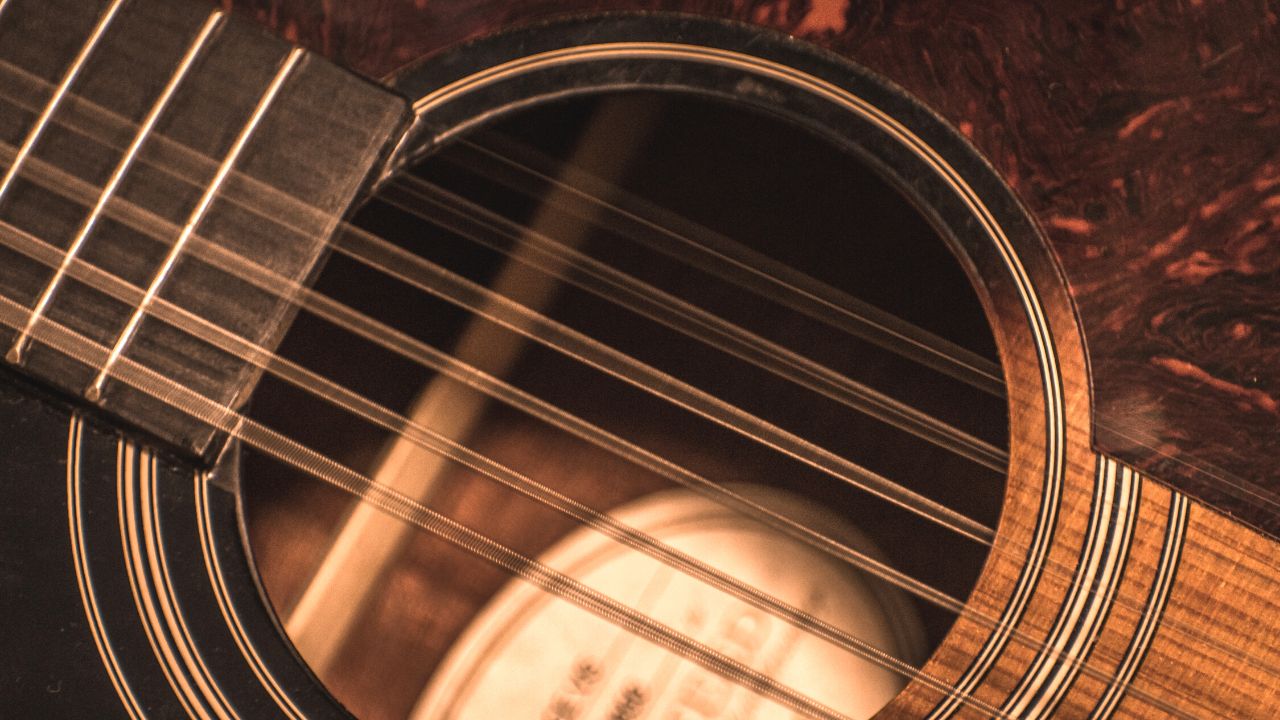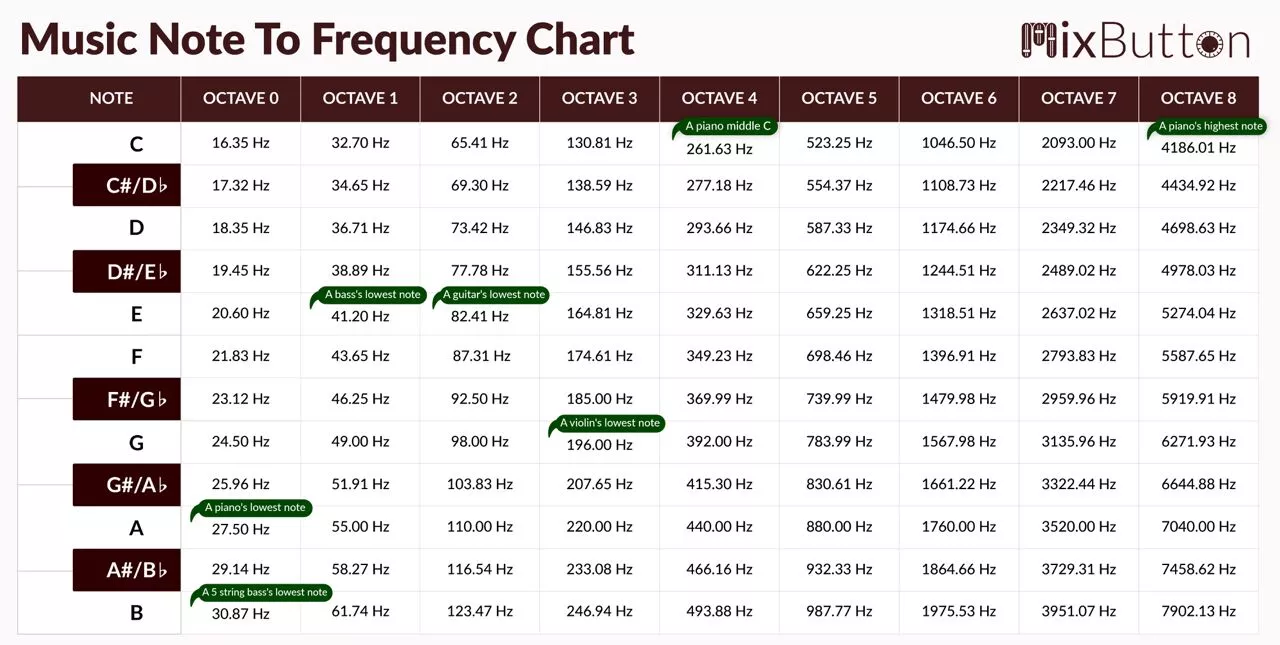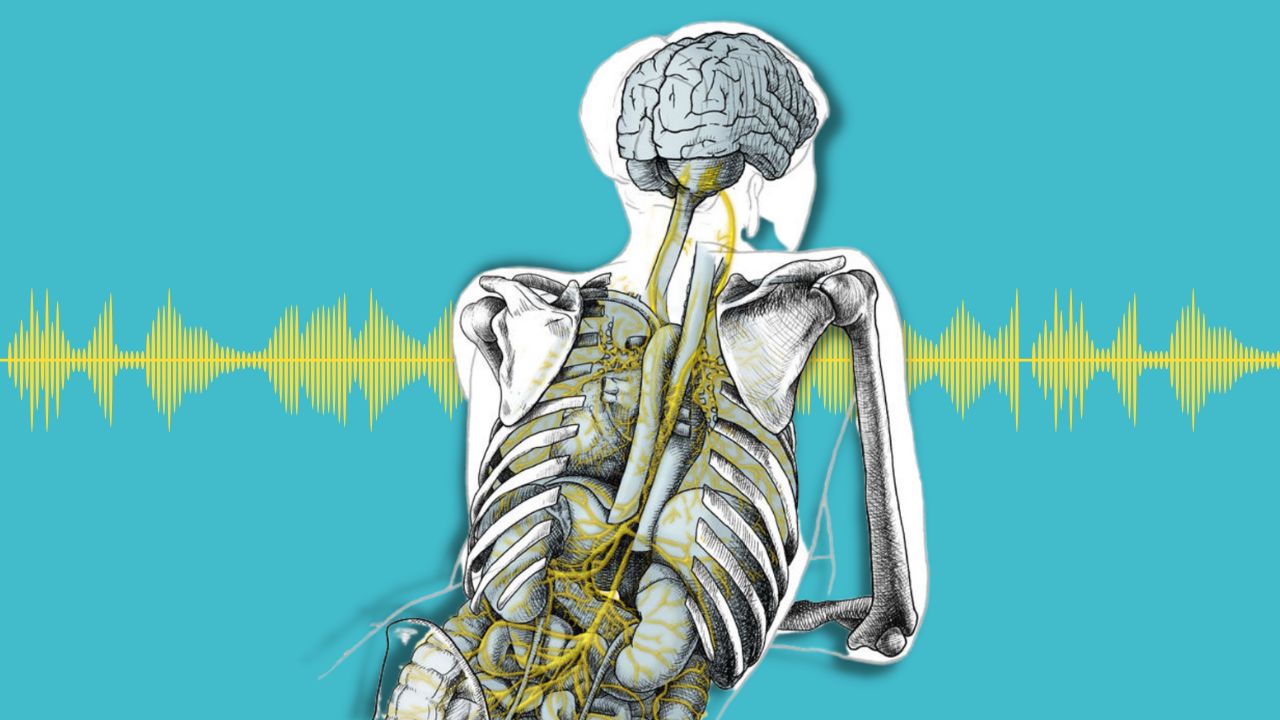Healing the Body with Frequencies: The Basics Explained

FAQ on Frequency Healing and Sound for Healing
What is frequency healing?
Frequency healing, often termed as "sound healing" or "vibrational healing", is a therapeutic approach that uses sound frequencies and vibrations to promote physical, emotional, and spiritual well-being.
Do healing frequencies actually work?
Frequency healing taps into the power of sound vibrations to address various concerns. Encouragingly, an expanding collection of credible scientific studies backs the health advantages of sound-based healing. The benefits encompass:
- Enhanced brain function and neurogenesis
- Diminished stress and anxiety levels
- Alleviation of pain
- Enhanced sleep patterns
- Uplifted mood
- Decrease in inflammation
Consistent feedback from clients using my sound healing solutions underscores their effectiveness. Many highlight the transformative impact of frequency healing, particularly the sound-based vagus nerve stimulation, on their well-being.
How does the frequency of healing work?
Mood improvement: In a 2018 study published in Frontiers in Psychiatry, researchers found that after just three months of vagus nerve stimulation, study participants suffering from depression saw a remission rate of 17 percent. And after one year of treatment, the remission rate rose to 33 percent.
Better brain health: Studies in the Journal of Natural Science, Biology, and Medicine have shown that vagus nerve stimulation increases neurogenesis—the formation of new brain cells—in the hippocampus, a part of the brain that plays a critical role in learning and memory.
Reduced high blood pressure: In another 2018 study published in the Journal of Traditional and Complementary Medicine, 54 participants regularly performed a vagal stimulation technique for three months, resulting in an 81 percent reduction in hyper reactivity (stress-induced blood pressure changes) and significantly lower diastolic blood pressure numbers.
One of the easiest and most potent ways to use frequency healing is to engage frequencies of your own voice. Doing so stimulates the vagus nerve which holds a number of healing benefits including:
Is there scientific evidence supporting sound for healing?
Yes, numerous studies have explored the therapeutic effects of sound—especially vocal sound exercises on the human body. Sound frequencies can induce decreased stress, which may influence moods, enhance meditation, improve sleep patterns, and even promote faster healing.
How do you use frequency for healing?
Using frequency for healing typically involves listening to specific tones or sounds, utilizing the frequencies in your own voice through special exercises, undergoing treatments with tools like tuning forks, or using advanced technological devices designed to emit desired frequencies. The goal is to expose the body to healing frequencies that can stimulate and balance its energy centers.
How is frequency healing different from other healing therapies?
Unlike many other healing therapies that use physical manipulation or drugs, frequency healing harnesses the natural power of sound waves. It's non-invasive and works by aligning the body's energies and frequencies to a harmonious state.
What tools are commonly used in frequency healing?
There are various instruments like tuning forks, Tibetan singing bowls, crystal bowls, the human voice and even advanced electronic equipment that generate specific sound frequencies for healing purposes.
Can everyone benefit from frequency healing?
While many people report benefits from frequency healing, results can vary from person to person. It's always a good idea to consult with a healthcare professional to determine if it's right for you.
Is there a specific frequency that is best for healing?
Different frequencies serve various purposes. For instance, the 528 Hz frequency is often termed the "Love Frequency" and is believed to promote healing and DNA repair. However, the effectiveness can vary depending on individual needs.
How does one practice sound for healing at home?
One can start by using sound healing exercises, or even simple instruments like a singing bowl. It's essential to be in a quiet environment and allow the sound to immerse you fully.
Are there any side effects of frequency healing?
Generally, frequency healing is considered safe and non-invasive. However, it's essential to ensure the volume levels are comfortable to avoid auditory issues. If you have underlying health conditions or are sensitive to certain sounds, consulting a professional is recommended.
How long does it take for frequencies to work?
The time it takes for frequencies to work can differ from person to person. Some might experience immediate relief or relaxation, while others may notice effects over a more extended period of regular listening or treatment.
What frequency do humans vibrate at?
Humans, at their molecular level, vibrate at different frequencies. According to existing research, the natural frequency of a human-standing body is about 7.5 Hz, and the frequency of a sitting posture is generally 4-6 Hz.
Is sound healing real?
Sound healing, a subset of frequency healing, has been practiced for centuries in various cultures. While individual experiences can be profoundly positive, scientific validation is still in its developmental stages. However, the therapeutic potential of sound and music is widely acknowledged.
Why is 432 Hz a healing frequency?
432 Hz is believed by many frequency healers to be an effective way to boost the body's healing potential.
Lately, researchers are discovering increasing evidence that tweaking the tuning reference note of an instrument, traditionally the note "A", to 432 Hz and subsequently adjusting the entire instrument to this slightly lower tuning can have notable implications.
While a minor shift in tuning might seem inconsequential at first, recent studies suggest the contrary.
Numerous recent investigations have found that music at 432 Hz yields better health results compared to music tuned to 440 Hz, such as:
- Decreased heart rate and blood pressure
- Reduction in anxiety and stress
- Enhanced sleep quality
- Alleviation of dental anxiety.
Where can I learn more about the benefits of frequency healing and sound for healing?
There are numerous resources online, including articles, studies, courses, and workshops, where one can delve deeper into the world of frequency and sound healing.
Unlock Your Body's Own Healing Frequency
Get Your Free 12 Minute "Brain Humming" Lesson
Experience the healing power of sound-based vagus nerve stimulation
Healing with frequency is an ancient idea that is gaining popularity in both the holistic health community and western medicine. It harnesses the power of sound vibration and frequencies to treat a variety of ailments, from physical pain to emotional stress.
In this comprehensive guide, you’ll learn about the science behind healing with frequency, how it works and specific frequencies of healing.
What Are Frequencies?
Frequency, as it relates to sound, is the rate at which something vibrates or repeats. In the context of frequency healing, these vibrations are the waves that are emitted when sound is produced by instruments such as the human voice, drums, tuning forks, and gongs among many others!
By transmitting and resonating energy through these vibrational frequencies, healing with frequencies can be a powerful way of naturally activating and restoring the body's health and well-being.
To be clear, I’m not talking about “miracle cures”, but rather, self directed ways to bring your entire being back into balance.
If you know how, these frequencies can interact with your body on a deep level, creating resonance and balance across all its systems. I’ll show exactly how to do it in just a moment, but first, let’s explore how it affects your overall health.
Among its many benefits, frequency healing can help to:
- Reduce stress
- Relieve pain
- Improve sleep quality
- Free up the body’s resources to mobilize its ability to restore health
The ancient history of healing with frequencies
The concept of healing with frequency isn’t new. In fact, frequency healers have been around since ancient times throughout the world.
These early medicine women and men utilized healing frequencies through a variety of methods including songs, dance, drumming and chanting.
A few of the many examples include:
Siberian shaman playing a sacred medicine healing drum...

Photo by Vladimir Shibanov
Australian aboriginal people playing the didgeridoo—a remarkable instrument capable of creating a wide range of lower range frequencies.

The Norwegian/Finnish Sami "Joik" singing tradition…

East Asian Buddhist chanting and singing bowl traditions..

For thousands of years, practitioners have utilized healing with frequency as a powerful tool to promote well-being.
Ancient philosophers famously viewed music as "the medicine of the soul" (Gfeller, 2002), while Greek physicians traditionally used various instruments such as flutes, lyres and zithers to heal patients through vibration.
Aristotle's influential work De Anima (323–373 BCE) discussed how flute music could help purify the soul and generate strong emotions. Additionally, scriptures from both the Old Testament and New Testament contain numerous references to the medicinal power of music.
Throughout many cultures, sounds and musical frequencies have been used when a person is sick and to help them bring balance to the body.
These healing practices have endured over thousands of years and many different places, proving that sound frequencies are capable of real change.
It's believed by many that healing frequencies can promote homeostasis in the body, which is essential for efficient healing. This happens when stress levels are reduced through listening or feeling the vibration of these relaxing frequencies.
To be sure, using sound frequencies as a means of healing is gaining traction across the world and is now gaining popularity due to its effectiveness in treating a variety of conditions.
How Much Better Could You Be Feeling?
✨Find out with Sound Solution Guided Audio and Video Collection
Discover how healing with sound can easily restore wellbeing and peace of mind—in minutes.
Get lifetime access to a potent collection videos, audios of to erase stress, silence racing thoughts and restore your peace of mind in minutes.
Understanding the Relationship Between Frequencies and Health
Jim Donovan demonstrating healing with frequencies in New York, @ Great Rhythm Revival Retreat
Have you ever wondered how sound and vibration can be used to heal the body?
It’s not a new idea.
Thousands of years ago, Pythagoras theorized that musical frequencies had the power to positively affect and heal the body. In the book Porphyry, On the Life of Pythagoras, it is said that:
“Pythagoras healed psychic and bodily sufferings with rhythm, songs, and incantations. He had songs and paeans for physical ailments: when he sang them, he relieved fatigue. He also could cause forgetfulness of grief, calming of anger, and redirection of desire.”
He also observed a connection between mathematical ratios and various musical chords, laying the foundations for a form of healing with frequency.
In recent years, scientists have studied the effects of frequency on the human body.
Research has revealed that frequencies—both sound and rhythms—can positively affect a number of key bodily functions including:
Reducing anxiety and depression
When a frequency is directed towards the body, especially when using the frequencies in your own voice, it can help restore balance and switch on your body’s rest, digest and restore mode—also known as your parasympathetic nervous system.
In this mode, your body triggers its natural healing response.
This kind of therapeutic frequency healing works by stimulating the vagus nerve with the vibration of your own voice. As you do this, it causes your body to: reduce tension and stimulate circulation, encouraging healthy energy flow throughout the body.
Have you ever tried using frequencies for health?
If not, you might consider it because it's quite easy to do.
Here’s a 90 second frequency healing exercise called Brain Humming:
- Inhale deeply.
- As you exhale, try to make a prolonged "M" sound while keeping your molars closed.
- Repeat this exercise 4-8 times, focusing all of your attention on how the vibration feels and noticing any physical or emotional changes that occur as you do it.
At the end you might notice a tingling or buzzing sensation in your head, mild euphoria, increased mental clarity, feelings of relaxation and tranquility or even more energy!
Try increasing vocal volume if nothing happens during the exercise and turn off any external distractions that can interfere with the process.
If you want to go a little deeper, you might enjoy my free guided frequency healing tutorial!
Selecting the Right Sounds for Healing with Frequencies

If you want to listen to frequencies for better health, choosing the right music is essential.
Different sounds and musical pieces often contain many different frequencies.
In general, it’s most helpful to choose music that feels calming in order to support the body’s healing processes.
Some people love the sound of instruments like the hand pan, while others may prefer natural sounds like ocean waves or the rain. Choosing the right sounds can have a powerful impact on your results, so take your time researching options before making a decision.
You also may have seen YouTube videos about healing frequencies like 432 Hz and Solfeggio Frequencies. While some of these videos are popular, it’s important to sort out what they can and can’t do.
A Beginner's Guide to Understanding Solfeggio Frequencies

Solfeggio frequencies are said to be part of a six-tone scale that dates back centuries and is believed to have incorporated sacred music, such as the famous and beautiful Gregorian Chants.
Solfeggio refers to using syllables to note scale tones—think “do-re-mi-fa-sol-la-ti-do”.
Some believe that when Solfeggio frequencies are played or sung harmoniously, spiritual blessings and healing energies can be imparted.
Others believe that certain frequencies are necessary for balancing energy in order to achieve harmony between the spirit, mind, and body.
Though we can’t know things of this nature for sure, we can say with certainty that singing any note stimulates the vagus nerve which holds a number of healing benefits including:
But with all of the thousands of YouTube videos and questionable advice on the internet, how can you know the best place to to start?
How to Choose the Best Solfeggio Frequency For You

Frequency, or sound vibration, has been used for centuries in many cultures as a form of healing. Each frequency carries its own unique vibration that travels through the air and is interpreted by our brains as distinct sounds.
For example, if we were playing a piano, the note “C” sounds different from the note “A”.
The reason those two notes sound different is because they vibrate at a slightly different frequency.
When referring to sound waves, hertz or Hz measures the speed air molecules are vibrated by the sound. In other words, 432 Hz would equal 432 vibrations per second!
Here's a handy hertz (hz) frequency chart for your reference:

Source: https://mixbutton.com/mixing-articles/music-note-to-frequency-chart/
A “middle C” on a piano vibrates at 261.63 Hz, whereas the “”A” note just a few keys above resonates at 440 Hz or 440 vibrations per second.

Image source: Northwestern University
Now let's take a look at the fascinating world of the Solfeggio Frequencies!
List of Healing Solfeggio Frequencies: Benefits and Research
The web is full of Solfeggio frequency lists touting all kinds of benefits. The intention here is to share the evidence behind these claims—or lack thereof—so that you can make more informed choices.
35-50 Hz
35-50 Hz tones aren’t traditionally included in most resources about Solfeggio frequencies that heal. However, we include them here due to existing research on them. 35-50 Hz were shown in this 2013 study to improve bone healing in rats. 35-50 Hz tones are similar to the lowest notes on a 4 or 5 string bass guitar.
40 Hz
In 2022, MIT researchers reported early-stage clinical study results of tests with noninvasive 40-hertz light and sound treatment. The novel treatment was observed to encourage increased neural activity and improve memory recall. This is believed to be due to the stimulation of gamma brain waves. 40 HZ is closest to a low “E” note sound on a bass guitar which is 41.20 Hz. Another 2015 study showed pain improvements for people with fibromyalgia using a 40 Hz treatment.
432 Hz
432 Hz is among the most popular of the Solfeggio frequencies
There’s been a long running debate on whether or not adjusting an instrument’s tuning reference made any difference.
But recently, researchers are finding more and more evidence that adjusting an instrument’s tuning reference note— traditionally the note “A”—a few cents flat to 432 Hz. And then tuning the rest of the instrument to this new, slightly flatter tuning makes a significant difference.
Though at first glance it doesn’t seem like a few steps flat would have much of an effect on anything, recent research is finding otherwise.
Multiple promising studies from the last few years find 432 Hz music to cause improved health outcomes when compared to music tuned to 440 Hz including:
Solfeggio frequencies are among the most popular ways that people use sound healing to promote relaxation and well-being.
By tuning music to certain frequencies like 432 Hz, research suggests we may be able to increase our body’s natural healing abilities.
528 Hz
The Solfeggio frequency 528 Hz is the second most popular of all the frequencies on this list.
And it’s one of four frequencies on this list that have been studied as far as we can tell.
In 2018 study, scientists in Japan showed that playing the 528 Hz frequency reduced stress hormones in the body in as little as 5 minutes of exposure.
528 Hz is the note “C” tuned a few cents higher from a typical 5th octave C on a piano, which normally 523.25 Hz. in conventional A=440 Hz tuning.
Solfeggio frequencies and claims yet to be researched
Just because there’s no current research, doesn’t mean there won’t be in the future.
It also doesn’t mean the frequencies listed below aren't helpful for some. When it comes to music preferences, go with what you enjoy!
Just remember to have realistic expectations when hoping to receive the results of each claim. If something seems to good to be true, it probably is. Use your best judgment.
174Hz
Some sources report that this Solfeggio frequency can help reduce pain and stress or is even a special “healing frequency”. It's hard to say for sure. What we do know is that 174 Hz is actually the note “F” and is closest to the lowest note on a violin. While you can certainly make healing relaxing music using the note “F”, there’s no known research on the effects of this frequency so far.
285 Hz
Some claim that this frequency can promote cellular regeneration and recovery of physical wounds like cuts, burns, and more. 285 Hz is in between the notes “D flat” and D. There's no known research on the effects of this frequency so far.
639 Hz
This frequency lands between the note “E flat” and E. There's no known research on the effects of this frequency so far. Some sources make claims about this Solfeggio frequency that revolve around assisting with interpersonal relationships and love.
741 Hz
To date, there’s no known studies on 741 Hz. Musically, this tone resides in between the notes “G flat” and G. Some believe that this Solfeggio frequency can promote a spiritual awakening.
852 Hz
Some sources report that this Solfeggio frequency helps to open one's intuitive capabilities. 852 Hz resides in between the notes “A flat” and A in the 5th octave of a piano. Again, we haven't found evidence or research on the effects of this frequency yet.
Unlocking Your Body's Hidden Healing Frequencies
 A diagram of the vagus nerve, back view— DonovanHealth.com
A diagram of the vagus nerve, back view— DonovanHealth.com
Given the amount emphasis placed on novel Hz numbers, it's important to remember that there are a highly potent "collection" of healing frequencies between 80 Hz and 255 Hz that most people have never heard of.
They're the ones within your own voice!
Regardless of vocal ability, quality or skill, creating simple healing frequency sounds with your voice can be a game changer when it comes to self care and healing.
Try this free 12 minute lesson that shows exactly how to do it. During and after the technique, you might feel or tingling sensation, mild euphoria and a deep sense of calm—especially if you finish the video.
Today’s take away
You deserve to feel good. Healing means to bring your body back into a state of balance. Your body repairs itself most efficiently when stress is low and sleep quality is high. Healing with frequencies can help you do that and much more.
Whether you’re looking to take the edge off of anxiety and bedtime, or are a frequency healer aiming at helping others live well, frequency healing is worth exploring.
Are You Ready to Discover Your Own Healing Frequency?
✨Try Sound Solution Guided Audio and Video Collection
Discover how healing with sound can easily restore wellbeing and peace of mind—in minutes.
Get lifetime access to a potent collection videos, audios of to erase stress, silence racing thoughts and restore your peace of mind in minutes.
Jim Donovan's Sound Solution is a seven part guided audio toolkit designed to help you easily discover your own healing frequencies using sound based vagus nerve stimulation.
Recommended: Our most popular posts
Stimulating the Vagus Nerve for Better Sleep, Stress Relief & Health
Rain Sounds For Sleep, Rest Easy With Nature
Music Healing for Stress, Anxiety and Pain
Benefits of Vagus Nerve Exercises & 7 Simple Practices
The Five Longevity Secrets of “SuperAgers”
Vagus Nerve Exercises for Stress and Anxiety Relief
The “Five Finger Trick” That Can Quiet Your Racing Mind
FDA Compliance: The information on this website has not been evaluated by the Food & Drug Administration or any other medical body.
We do not aim to diagnose, treat, cure or prevent any illness or disease. Information is shared for educational purposes only. You must consult your doctor before acting on any content on this website, especially if you are pregnant, nursing, taking medication, or have a medical condition.
The material provided on this site is for educational purposes only and any recommendations are not intended to replace the advice of your physician. You are encouraged to seek advice from a competent medical professional regarding the applicability of any recommendations with regard to your symptoms or condition.
Copyright © 2025 by Blue Beat Media, All Rights Reserved
Thank you for your interest in Jim Donovan / Jim Donovan Music.
We do not allow republication of our full newsletters and articles. However, you can post a portion (no more than 90 words, 1-2 paragraphs) of our content with a live link back to our homepage, donovanhealth.com, or a link to the specific article you are quoting from.
About the author:
Jim Donovan M.Ed. is a multi-platinum musician, educator and TEDx speaker.
His mission is to share the restorative power of music through education and performance.
Donovan is an Assistant Professor and Director of Music and Wellness at Saint Francis University.
His viral TEDx Talk "How to Trick Your Brain Into Falling Asleep" has been viewed over 6 million times to date.
He currently performs with his band The Sun King Warriors who can best be described as a blend of rhythm heavy roots rock, with a strong dose of big barreling drums.
Jim Donovan got his start as a founding member of the multi-platinum selling band Rusted Root.
There he co-wrote the song “Send Me on My Way” featured in the movies "Ice Age", "Matilda" and the Netflix series "New Girl".
During his time with the band 1990-2005, he recorded and released seven full length albums. Including "When I Woke" (3x platinum).




